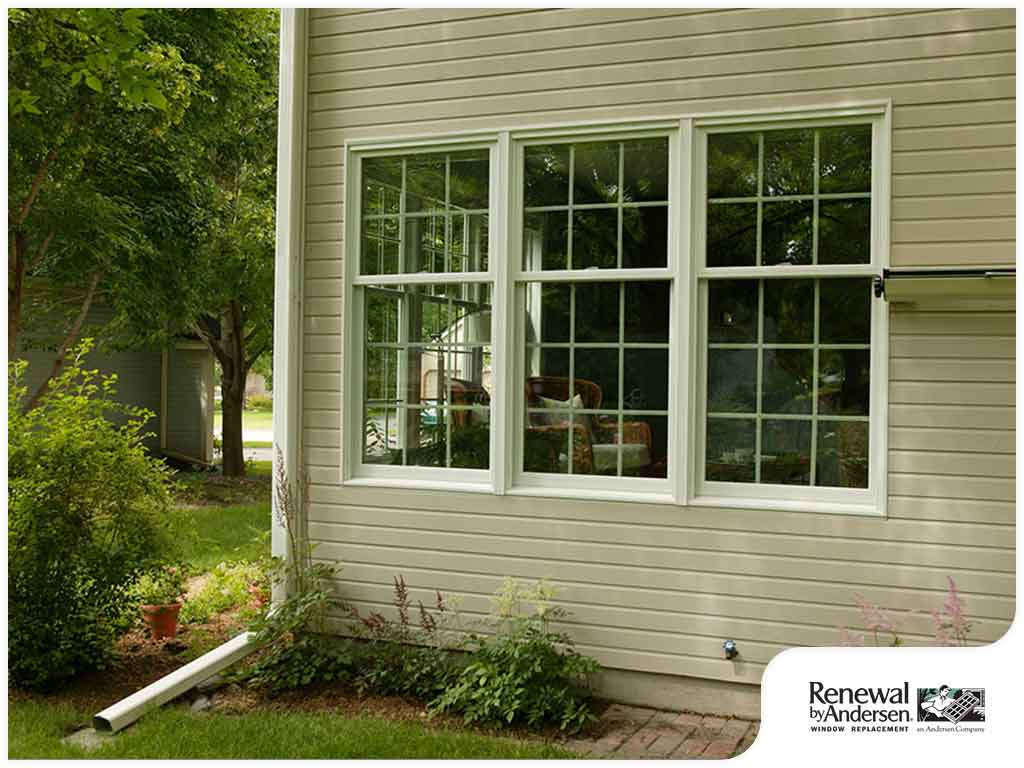

Now that the weather’s getting colder, you should check your exterior for any gaps. Heat can leak out of these holes and increase your power costs this fall and winter. In particular, you should inspect your windows and doors, the two most vulnerable parts of the exterior.
It’s not uncommon for condensation to form on your window. High indoor humidity levels are usually the culprit. Adjusting your HVAC unit’s thermostat and wiping the glass should do the trick. But if you can’t seem to wipe the condensation off, it might be that the condensation is located between the glass panes. This is a sign that there’s a leak in the window sealing.
Most modern double-paned windows are filled with argon. This odorless, colorless and non-toxic gas blocks the transfer of heat, increasing a window’s energy efficiency. If the window sealing is punctured, argon starts to leak out, and moisture starts to enter the space between the two glass panes. This causes the window glass to fog up and, in some cases, collapse. If parts of the glass pane did collapse, you’ll notice distortions in your reflection on the glass.
The only problem is the glass distortions are often subtle. By the time most homeowners notice it, most of the argon glass will have already leaked out of the window.
Here’s an easier way for checking for leaks: close your windows, doors and all other openings in your house. Light an incense stick, and place it near your windows and doors. If there’s a leak in your windows or a crack in your doors, the smoke should start to drift towards them.
It’s possible to repair the window sealing, but we don’t recommend it. We suggest getting a window replacement instead. That’s because the repairs can only plug the holes in the sealing: it’s impossible to refill the window with argon. This results in a less energy-efficient window.
You could replace the glass panel with a new insulated glass unit. However, an insulated glass unit costs roughly the same as a new window. As such, it’d be more cost-effective to buy a new window.
You should also check your windows and doors’ locking mechanism. If you have casement windows, check if it’s crank mechanism is working properly.
You can also gently shake the window frame. If you hear a rattling sound, the frame might have loosened a bit. If this is the case, you can tighten the screws or have a contractor realign the frame for you.
Keep in mind that, without proper maintenance, some doors and windows are more damage-prone than others. Take sliding doors and windows, for example. They’re easy to open, but it’ll be harder to close them if you don’t clean their tracks or oil their latches at least once a week.
Other times, the warning signs of a leak aren’t so subtle. Water dripping from the edges of the window can leave behind a brown stain at the bottom of the frame.
However, before you attempt to fix your windows or doors, check if they’re still under warranty. Unauthorized repairs can void it. If it isn’t, have a contractor inspect it. If the damage is extensive, it’d be more cost-effective to install replacement doors and windows.
If you do decide to install new doors and windows, only hire a qualified contractor. Doing your research before hiring one will reduce the risk of leaks in the long term.
Looking for a reputable contractor in your area? Renewal by Andersen® of Nashville offers a wide variety of premium doors and windows, including sliding windows and patio doors. To get a free estimate, call us at (866) 609-5033, or fill out this form. We serve homeowners in Clarksville and Nashville, TN.